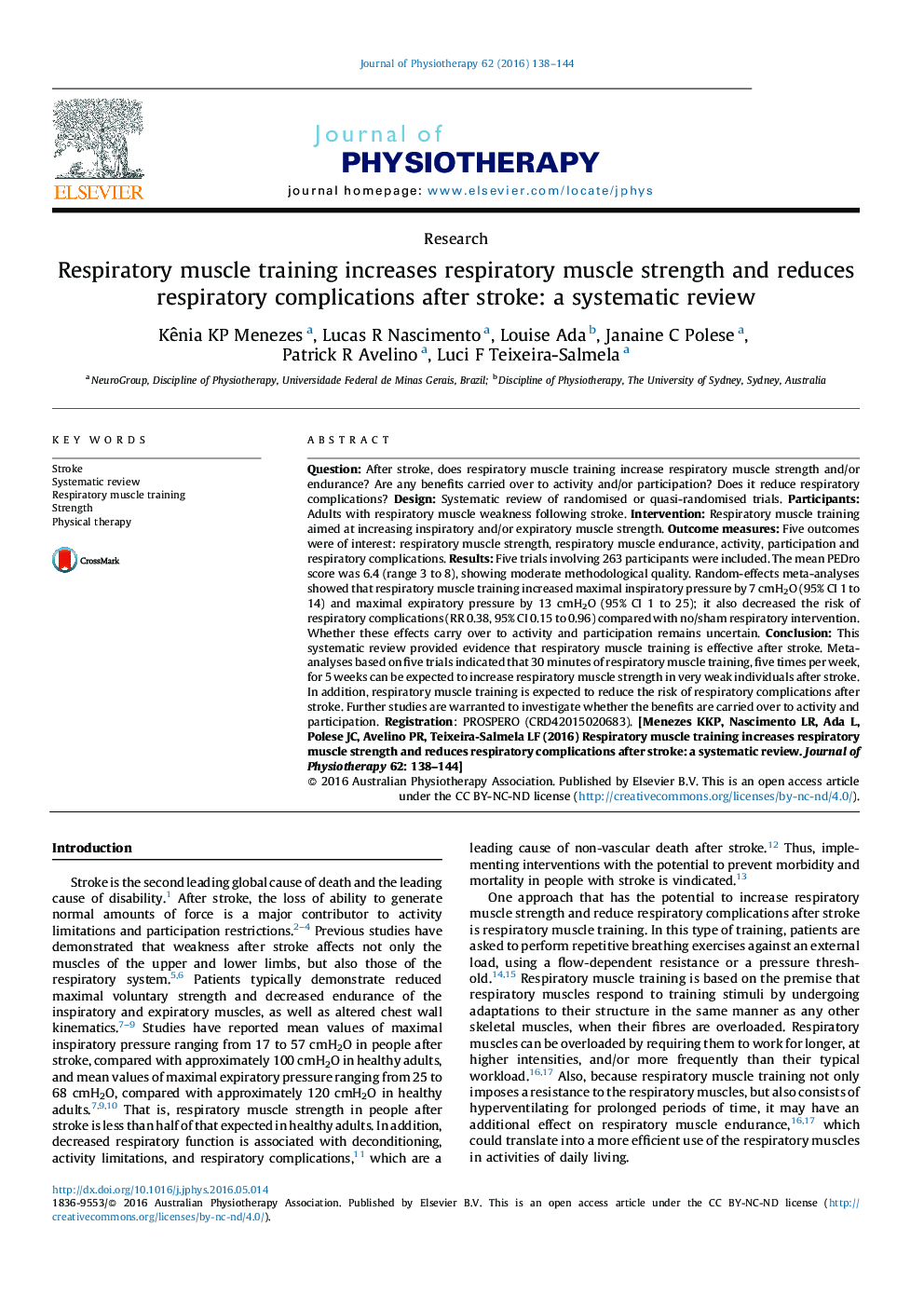| کد مقاله | کد نشریه | سال انتشار | مقاله انگلیسی | نسخه تمام متن |
|---|---|---|---|---|
| 2621814 | 1403513 | 2016 | 7 صفحه PDF | دانلود رایگان |
Question: After stroke, does respiratory muscle training increase respiratory muscle strength and/or endurance? Are any benefits carried over to activity and/or participation? Does it reduce respiratory complications? Design: Systematic review of randomised or quasi-randomised trials. Participants: Adults with respiratory muscle weakness following stroke. Intervention: Respiratory muscle training aimed at increasing inspiratory and/or expiratory muscle strength. Outcome measures: Five outcomes were of interest: respiratory muscle strength, respiratory muscle endurance, activity, participation and respiratory complications. Results: Five trials involving 263 participants were included. The mean PEDro score was 6.4 (range 3 to 8), showing moderate methodological quality. Random-effects meta-analyses showed that respiratory muscle training increased maximal inspiratory pressure by 7 cmH2O (95% CI 1 to 14) and maximal expiratory pressure by 13 cmH2O (95% CI 1 to 25); it also decreased the risk of respiratory complications (RR 0.38, 95% CI 0.15 to 0.96) compared with no/sham respiratory intervention. Whether these effects carry over to activity and participation remains uncertain. Conclusion: This systematic review provided evidence that respiratory muscle training is effective after stroke. Meta-analyses based on five trials indicated that 30 minutes of respiratory muscle training, five times per week, for 5 weeks can be expected to increase respiratory muscle strength in very weak individuals after stroke. In addition, respiratory muscle training is expected to reduce the risk of respiratory complications after stroke. Further studies are warranted to investigate whether the benefits are carried over to activity and participation. Registration: PROSPERO (CRD42015020683). [Menezes KKP, Nascimento LR, Ada L, Polese JC, Avelino PR, Teixeira-Salmela LF (2016) Respiratory muscle training increases respiratory muscle strength and reduces respiratory complications after stroke: a systematic review.Journal of Physiotherapy62: 138–144]
Journal: Journal of Physiotherapy - Volume 62, Issue 3, July 2016, Pages 138–144
